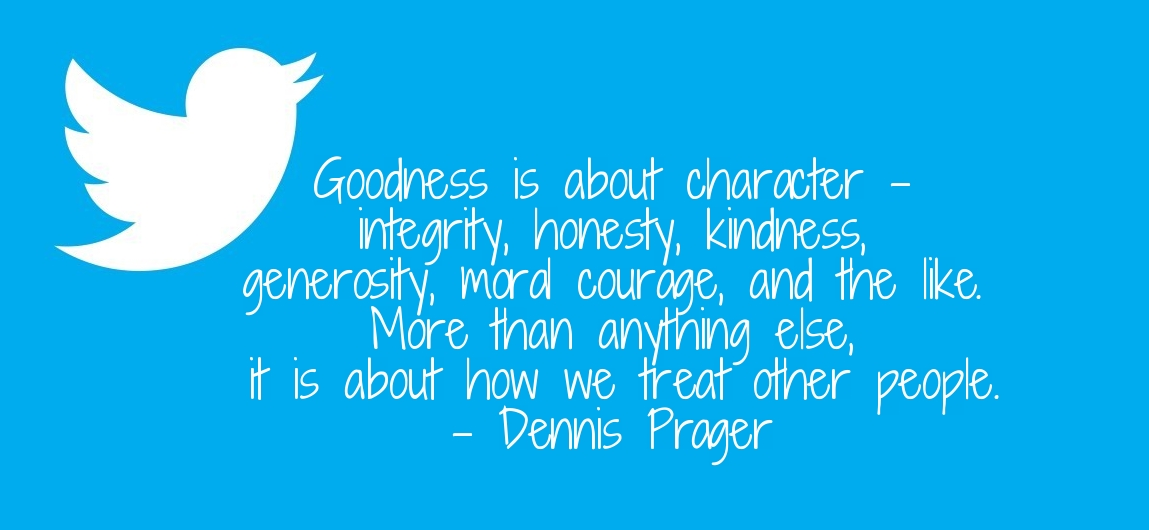What's Up With That Twitter?
By Oskar Cymerman | @focus2achieve | BAm! Radio Network EdWords Blogger
This post is “a long time coming.” It’s about Twitter and educators. I recently read an article by Christopher Bronke, a HS English Teacher, “A Wide Open Door…to Shallow Waters: the dark side of Twitter” about the way Twitter has changed in the recent years, and not for the better. After a back and forth conversation with Chris and Brooke Carlyle Perry, a 6th grade teacher, I was compelled to finally write what follows. I know this post will ruffle a few feathers. But, this one issue I will talk about really bugs me. And I found that the best way for me to reflect and let go is to write about the issue I’m grappling with. And, I have questions.
So…
Twitter, I Think I Love You
I first joined Twitter in October 2009, followed a few peeps, tweeted 3 times, and let it go. I don’t even remember the password to that old account.
I re-engaged last year. Created a new account. Got a website. A blog. I started following other educators. Reading their stuff. Tweeting. Re-Tweeting. Liking. Participating in chats. Interacting. LEARNING A TON. Applying in my teaching practice. I loved it!
Twitter, I Think I Hate You
But here’s the deal. When I first re-engaged on Twitter I started following a lot of other educators to build my PLN. Some followed back. Some did not. That’s cool. What I found irritating was what I call “gratitude DMs and Tweets.” I mean, it’s one thing to not follow back. I’m all good with that. Some people try to keep their feeds manageable. I get it.
But, what is up with the non-followers that DM or Tweet that they are “so grateful to have [me] in [their] PLN and to be able to learn together!”
?!?!
Seriously. Someone explain that one to me please. Is there some sort of an initiation I need to go through to be worthy of a follow back from such ? I mean if you want to learn “together” you don’t mean “me learning from you” only, do you? C’mon. That’s a valid question. If you are happy to have me in your PLN, and let’s dissect it - Personal Learning Network, then why do you stay impersonal?
If you use an automated service such as crowdfire or commun.it for the “gratitude DMs and Tweets” I contend that’s even worse. Not only are you sending disingenuous messages, but you are also sending a message that while you are happy to increase your follower count, you want nothing to do with me. Luckily, all it takes is 2 quick taps to wash that bad taste out of my mouth…
Twitter, I Love You Because Of My PLN
Look: Twitter is not a perfect platform. There are things in Chris’s article that bug me to some extent too. But… I LOVE MY PLN. The amount of learning and inspiration to reflect and grow I have received is unfathomable if you’re not connected. My growth has been exponential since becoming a connected educator. It has influenced positive change in all facets of my life: personal, family, professional, and social.
Occasionally, I will stumble upon a chat where I feel uninvited and people are “in their heads” too much. But mostly, I enjoy them and get something out of them. The private and open conversations I have with other educators, and we’re not always agreeing, have been enlightening to life-changing for me.
I follow a lot of educators. Some users might see it as a faux pas. I don’t know. It is what it is. I promote my blog and will soon promote my book. I have a lot of thoughts to reflect on, mistakes to admit to, and things to say. But, I read a lot of other educator’s stuff, listen to their podcasts, and watch their videos. And while I cannot engage with everyone, I believe everyone has value and a lot to offer.
So, when an educator follows me, and it is clear in their profile that he or she is an educator, I follow back. I don’t DM them to say how grateful I am to have them in my PLN and to learn from them. I don’t do that and then not follow back. I follow, because I know that I will often stumble upon game-changing and uplifting messages in the faster-than-thought-non-stop-Twitter-stream I have created for myself. If I do not follow back, I might never get the chance to learn. And maybe I’m old-fashioned, but to me “connecting” is a two-way street.
So I want you to know this Twitter: I Don’t Hate You. In Fact, I Love You. Till Death Do Us Part. We’re Like Forrest and Bubba. You’re The Holes To My Swiss Cheese. You’re Da Bomb! It Just Bugs Me When Peeps Are Insincere… What’s Up With That Twitter?
Thank you for reading! I’d love to hear your take on the inauthentic self-serving Twitter use in the comments below. Sign up for my NEWSLETTER if you would like to receive more educational articles and brain-based learning infographics containing tips and strategies that work in helping students become better learners and add to your teaching toolbox.
You Have the Power to Change the World. Use it often.



